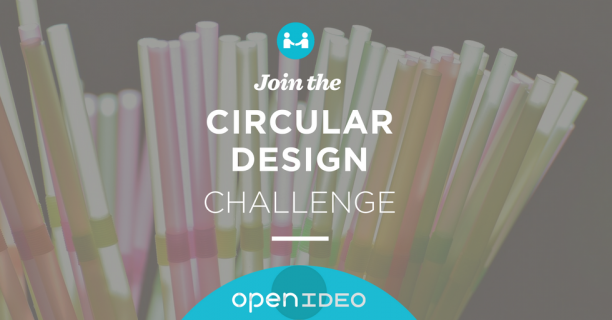Organizations involved
THE NEW PLASTICS ECONOMY INITIATIVE
The New Plastics Economy is an ambitious, three-year initiative to build momentum towards a plastics system that works. Applying the principles of the circular economy, it brings together key stakeholders to rethink and redesign the future of plastics, starting with packaging. The initiative is led by the Ellen MacArthur Foundation in collaboration with a broad group of leading companies, cities, philanthropists, policymakers, academics, students, NGOs, and citizens.
The initiative is supported by Wendy Schmidt as Lead Philanthropic Partner, and MAVA Foundation, Oak Foundation, and players of People’s Postcode Lottery (GB) as Philanthropic Funders. Amcor, The Coca-Cola Company, Danone, MARS, Novamont, PepsiCo, Unilever, and Veolia are the initiative’s Core Partners.
ELLEN MACARTHUR FOUNDATION
The Ellen MacArthur Foundation was created in 2010 to accelerate the transition to a circular economy. The Foundation works across five areas: insight and analysis, business and government, education and training, systemic initiatives, and communication. With its Knowledge Partners (Arup, IDEO, McKinsey & Co., and SYSTEMIQ), and supported by Core Philanthropic Funder (SUN), the Foundation works to quantify the economic opportunity of a circular model and to develop approaches for capturing its value. The Foundation collaborates with its Global Partners (Danone, Google, H&M, Intesa Sanpaolo, NIKE, Inc., Philips, Renault, Unilever), and its CE100 network (businesses, universities, emerging innovators, governments, cities and affiliate organisations), to build capacity, explore collaboration opportunities and to develop circular business initiatives. By establishing platforms such as the New Plastics Economy initiative, the Foundation works to transform key material flows, applying a global, cross-sectoral, cross value chain approach that aims to effect systems change.
www.ellenmacarthurfoundation.org | @circulareconomy
INTERNATIONAL SUSTAINABILITY UNIT
The Prince of Wales's International Sustainability Unit (ISU) was formed in 2010 to address critical challenges to development and the environment. The ISU builds on the success of The Prince’s Rainforests Project, established to help find a solution to tropical deforestation. With an international reputation for neutral convening, underpinned by rigorous analysis, the ISU engages key actors from Governments, the private sector, research communities and civil society to catalyze positive change across the global sustainability agenda.
The ISU's Marine Programme focuses on the global transition to a sustainable Blue Economy. The core components of this work include fish stock recovery, coral reef health and marine plastic pollution. During the last six years the ISU has brought together stakeholders from all sectors to accelerate solutions to some of the most pressing ocean-related challenges and build consensus on solutions for and a pathway towards a sustainable Blue Economy.
WENDY SCHMIDT
Wendy Schmidt is President of The Schmidt Family Foundation, where she works to advance the development of renewable energy and the wiser use of natural resources. The Foundation houses its grant-making operation in The 11th Hour Project, which supports more than 150 non-profit organizations around the world in program areas including renewable energy, ecological agriculture, human rights, and our maritime connection through its 11th Hour Racing program. In 2009, Wendy Schmidt and her husband, Eric Schmidt, created the Schmidt Ocean Institute (SOI), and in 2012 launched the research vessel, Falkor, as a mobile platform to advance ocean exploration, discovery, and knowledge, and catalyze the sharing of information about the oceans. Since 2012, Falkor has hosted more than 500 scientists from 27 countries.
To further her commitment to ocean issues, in 2010 Wendy Schmidt partnered with XPRIZE, following the Deepwater Horizon disaster, to sponsor the Wendy Schmidt Oil Cleanup XCHALLENGE, a $1.4 million competition designed to identify efficient and innovative solutions to clean up surface oil spills. Wendy Schmidt once again partnered with XPRIZE in 2012 to design the Wendy Schmidt Ocean Health XPRIZE, a $2 million purse, awarded in July, 2015, where competitors responded to the global need for accurate and available sensors to more broadly measure the signs of ocean acidification, one of the harbingers of climate change.
Wendy Schmidt is the Lead Philanthropic Partner of the New Plastics Economy Initiative, which is led by the Ellen MacArthur Foundation. Wendy earned an M.J. in Journalism from The University of California at Berkeley, and a B.A. magna cum laude from Smith College.
Follow Wendy on Twitter: @wenschmidt




Hi Hannah, I looked through the challenge brief again, I can't see anything about stopping plastic and rubbish entering the ocean, hopefully they will look at this problem soon as there needs to be more done to take plastic out of the ocean and stop it reaching the ocean in the first place. Kind Regards Gaelan.
Hi Gaelan,
Thanks for reaching out. My best advice is to read our Challenge Brief in full - if you can make a case for your innovation fitting one of the use cases, then please do submit!
http://ideo.to/eNixIo
Hi Hannah, I am wondering can I enter this competition with my innovative device BinStrap. Our product is designed to keep litter, rubbish and plastic in the bin and out of the ocean. We believe that Prevention is Better than Cure at BinStrap. There are over 1.5 Billion wheelie bins worldwide, A massive amount of these bins get knocked over, blown over, attacked by animals, rodents and birds every day. The rubbish then escapes and polluts our Environment, Rivers and Oceans and is having a detremental effect on wildlife, it is also causing huge clean up costs and having a negative effect socially whilst also effecting tourism. Securing these bins is a simple solution, it is effective, affordable and will cut down on litter pollution enormousely around the world.